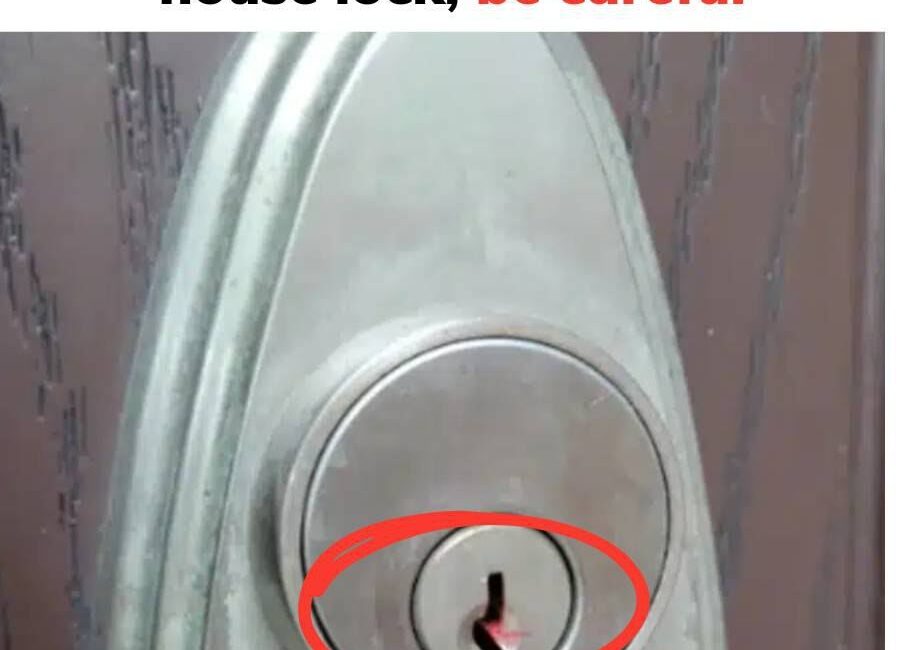In an age where home security is more critical than ever, unusual signs can serve as significant indicators of potential threats. One such intriguing and alarming indicator is the presence of red wax on your house lock. Whether it appears suddenly or is undetected for a period, red wax can mean more than just an unusual smear; it can be a silent warning that shouldn’t be ignored. Throughout this article, we will explore the implications of finding red wax on your house lock, potential security risks, and precautionary measures that homeowners can take to protect their property.
1. The Appearance of Red Wax
At first glance, red wax might seem innocuous or even a simple mess caused by a candle. However, it can carry considerable implications that extend beyond aesthetics. Wax might find its way onto a lock accidentally, but if this anomaly appears out of nowhere, particularly in urban environments, it can be a marker. Understanding its origins is crucial.
1.1 Origin of Red Wax
The emergence of red wax at your front door may indeed trace back to malicious intents. Criminals sometimes use red wax or markings to signal that they’ve scoped out a house as a target. The wax may serve various purposes: to indicate vulnerability, to act as a signal to other would-be criminals, or as a marker that the house is monitored for potential entry.
1.2 Signs and Markings
Criminals can be clever and utilize different tactics to identify places of interest. The origin of the wax must be scrutinized and examined closely. Red wax can sometimes be mistaken for indicators employed by gangs or individuals perhaps conducting surveillance on your property.
2. The Implications of Red Wax
If you find red wax on your house lock, it is essential to reflect on the potential meanings and implications. The implications can range from minor annoyance and inconvenience to serious potential threats.
2.1 Home Security Threats
The most concerning implication of finding red wax is the possibility that your home has been chosen for a break-in. Thieves may mark houses to signal that they are easy targets, or perhaps they are waiting for the opportune moment to strike. Here are a few nuanced threats:
2.1.1 Target Selection
The presence of red wax can indicate that a thief views your property as low-risk. They may have surveyed your home, noted particular habits such as your comings and goings, and deduced that it would be easy to break in. If they are marking your house, they may have selected it as a priority target.
2.1.2 Burglary Coordination
In a more organized crime setting, red wax can serve as an alert system between burglars. If one criminal spots red wax on a house lock, it may alert them that another group has already targeted that property, thereby facilitating a coordinated effort to execute a planned burglary.
2.2 Vandalism or Disturbance
Sometimes, red wax may represent acts of vandalism or petty disturbances with no explicit intent to burglarize.
2.2.1 Neighborhood Mischief
In residential areas, mischief can occasionally escalate. Finding red wax near your door could have indicated an intentional prank by neighbors or local youths. It’s essential to distinguish between threats and harmless juvenile antics.
2.2.2 Gang Signs
In some circumstances, the markings could serve as signals associated with gang activity. Red often has associations with gang ties. If these markings are visible, there may be implications for safety, both for you and your family, as well as for your home.
3. Responding to Red Wax
If you encounter red wax on your lock, responding appropriately is crucial. Ignoring the sign can lead to severe consequences. Here’s a guide on how to react:
3.1 Investigation
First and foremost, investigate why the red wax is on your lock.
3.1.1 Observe Surroundings
Take a few moments to observe your surroundings. Is anyone lurking nearby? Are there peculiar vehicles in proximity? Take note of anything that seems out of place or unusual.
3.1.2 Check for Additional Signs
Look for other signs which might indicate a deeper issue. For instance, are there unusual marks around your door, such as scratches or scuffs? Have you noticed any changes in your neighborhood’s behavior?
3.2 Consult Neighbors
Creating an open channel of communication with your neighbors is essential. If you find red wax, reach out to them. Here’s how to engage them:
3.2.1 Share the Information
Let your neighbors know what you have discovered. Perhaps they have seen similar marks or encountered other oddities in the neighborhood.
3.2.2 Collective Vigilance
If more neighbors collaborate and share information, it becomes easier to protect the community against security threats.
3.3 Document Findings
Make a record of your findings.
3.3.1 Take Photos
Document the red wax with photographs from different angles.
3.3.2 Create a Log
Keep a log that includes the date and time you discovered the wax, what any unusual activities or people you’ve noted in the vicinity.
3.4 Contact Authorities
If you deem it necessary, do not hesitate to contact local law enforcement. Provide them with all collected information.
3.4.1 Report an Incident
Even if it doesn’t lead to immediate action, it’s vital to file a report. Written documentation can prove useful in the event of future incidents.
4. Proactive Home Security Measures
While responding to a present issue is crucial, being proactive can help protect your home from future threats. Here are some essential home security measures that can provide peace of mind.
4.1 Security Systems
Investing in a robust home security system can significantly deter potential criminals.
4.1.1 Alarm Systems
A good alarm system that triggers upon unauthorized access will signal that your house is protected, reducing the likelihood of being targeted.
4.1.2 Security Cameras
Installing security cameras allows you to monitor your property actively. Many modern systems offer smartphone integration, granting homeowners the ability to watch their home remotely.
4.2 Home Fortification
Fortifying your home can dissuade potential threats.
4.2.1 Reinforced Locks
Upgrading the locks on your doors can make unwarranted entry more difficult.
4.2.2 Security Lighting
Installing motion-activated lighting can deter intruders. Sudden illumination can cause would-be intruders to second-guess their decision to approach.
4.3 Awareness of Security Services
Stay well-informed about local security services.
4.3.1 Neighborhood Watch Programs
Engage with local neighborhood watch programs. These initiatives can build community relationships and reduce crime rates significantly.
4.3.2 Security Partnerships
Consider consulting professional security services. They can recommend tailored security solutions according to the unique aspects of your neighborhood.
4.4 Building Relationships
Building connections in your community can bolster your home security.
4.4.1 Regular Communication
Frequently communicate with your neighbors. Inform one another of your schedules or travel plans.
4.4.2 Shared Security
Consider securing various homes collectively, where you look out for each other’s properties.
5. Understanding Criminal Behavior
To better protect yourself, understanding criminal behavior can be influential.
5.1 Criminal Mindset
Understanding how criminals think offers an edge in securing your home.
5.1.1 Vulnerability Assessment
Criminals often conduct risk assessments when targeting a home. They tend to look for homes typically unoccupied during certain hours or those lacking security measures.
5.2 Trends in Burglary
It’s also crucial to keep an eye on the latest trends in local crime.
5.2.1 Stay Informed
Engage with local news reports that detail any spike in crime in your area. Communities often share information about prevalent crime tactics via social media platforms.
5.3 Understanding Local Crime Statistics
Familiarize yourself with crime statistics in your locality. If wax markings are rising in your area, it’s essential to take these warnings seriously.
Final Thoughts
Finding red wax on your house lock should never be taken lightly. Whether it indicates security threats, acts of mischief, or patterns of neighborhood troubles, the important takeaway is to remain vigilant and proactive. Ensuring your home’s safety can largely rely on awareness, communication, and preparedness.
The presence of red wax serves as an essential lesson of how small details can reflect larger issues. It’s never too late to assess the status of your home security or to become more engaged with your community. By taking appropriate steps today, you can build a safer environment for yourself and your loved ones while also contributing to the overall security of your neighborhood. Always remember the old adage: an ounce of prevention is worth a pound of cure. Be proactive, stay informed, and create a sanctuary for your family where the threats remain at bay.




